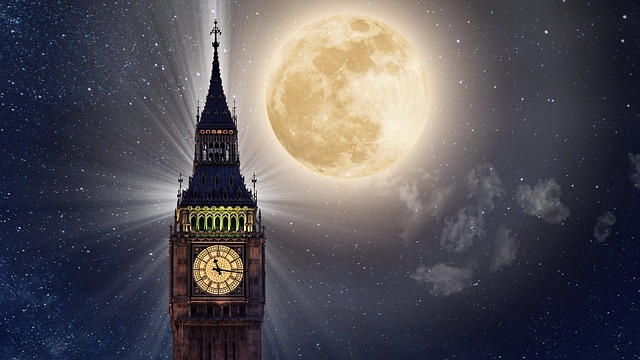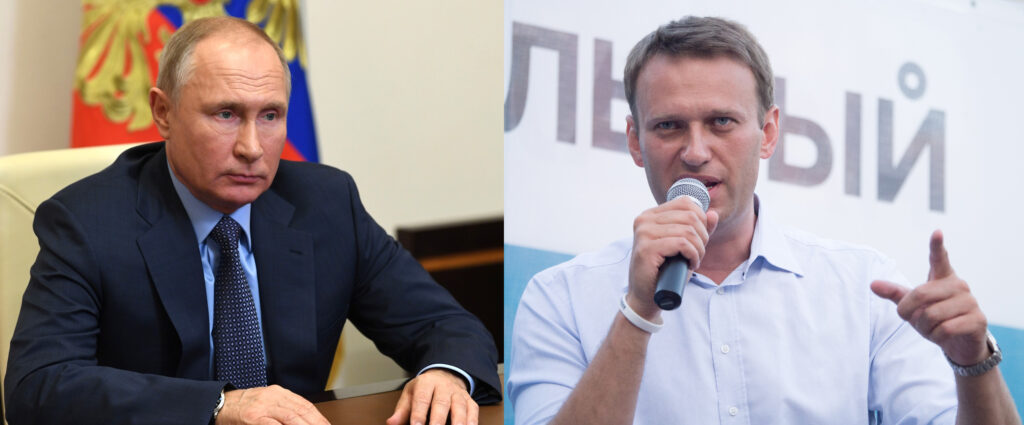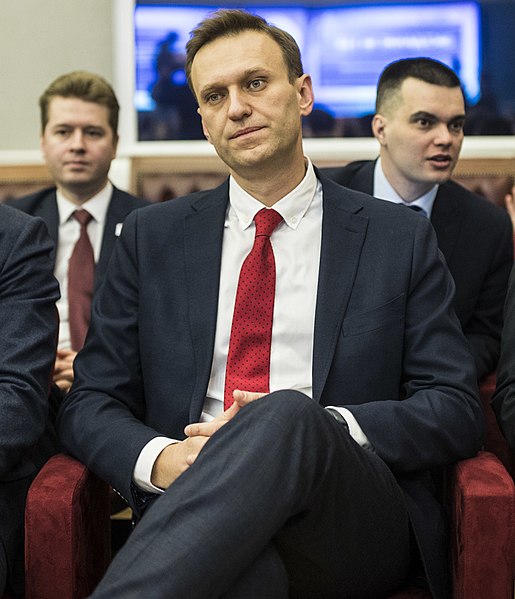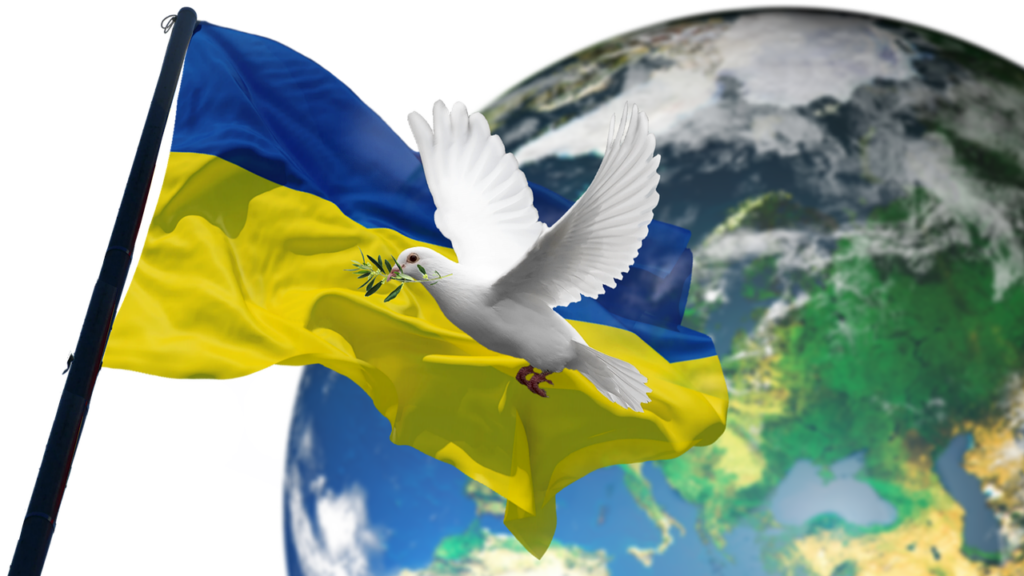For the eyes of the Lord are on the righteous, and his ears are open to their prayer. But the face of the Lord is against those who do evil. 1 Peter 3:12
Update: Sadly, the news of Alexei Novalny’s death in Yamalo-Nenets Penitentiary in western Siberia February 16, 2024, seemed merely a sidenote in the major American media sources which reported he “became unwell” after taking a walk. Prison officials reported he had ‘almost immediately lost consciousness’ and was declared dead in spite of the medical experts’ effort to resuscitate him. Only the day before, Navalny, 47, was looking healthy and laughing via a video link during his court hearing (Kirby, “Putin critic”).
Now, nearly a year and a half later, Navalny’s wife Yulia has reported that two biological samples from her husband’s body were smuggled to laboratories in two different countries, both confirming Navalny was ‘murdered’ by poisoning (Kirby, “Putin critic”).
And Putin’s response to his political opponent’s death as he moves into his fifth term as Russia’s president? “As for Navalny, yes he passed away, this is always a sad event” (qtd in Kirby, “Putin finally names Navalny”).
*******************************************************
Many of us have found ourselves gravitating to our phones and televisions the last few days, waiting for each new update about the Ukrainian crisis. And, undoubtedly many of us have lost sleep the last few nights, worried about the state of the world in general as well as the plight of millions of Ukrainians and Russians whose lives will never be the same.

Siergiejevicz/Wikimedia Commons
It’s as if our planet has careened off course, rotating in reverse, traveling back to our grandparents’ era when Hitler’s Wehrmacht–his army, navy, and airforce, terrorized Europe and threatened freedom around the globe. That generation lived for weeks, months, and years, suspended in agonizing uncertainty about how the events would all play out. And in the end, of course, just like any Marvel superhero movie, the good guys of that generation came to the rescue. The good guys won.
But don’t discredit the role that millions of prayers also played in restoring world peace in that era–just as it can now.
On April 23, 1940, as approaching German forces threatened the United Kingdom, British WWI veteran Wellesley Tudor Pole began his campaign for a Silent Minute, “a united moment of prayer and silence” (qtd. in Wolfe). One month later, on May 27, 1940, over 700 humble civilian British seacraft rescued 338,000 British and French troops in Operation Dynamo, “as by a miracle, from a position which threatened annihilation,” Prime Minister Winston Churchill declared in the day that followed (qtd. in Slade). And, as more nations were drawn into the conflict, the bells of Big Ben were broadcast around the world at 9 pm every evening London time, reminding a worldwide radio audience to pray for peace.
Was Big Ben’s silent moment a key factor in bringing the allies to victory? The idea divides the faithful from the faithless even today. However, one German officer reportedly believed it had merit. Simon Wolf’s article in the May 12, 1951 edition of the Sydney Morning Herald disclosed the following annecdote. The same story was recounted by Wellesley Tudor Pole himself in a letter to President Dwight D. Eisenhower dated August 11, 1953:
At the end of the War a Staff Officer of the German Intelligence Corps made this remark when under interrogation at British H.Q. in Germany: “During the war you had a secret weapon for which we could find no counter-measure and which we did not understand, but it was very powerful. It was associated with the striking of Big Ben at 9pm each evening [sic]. I believe you called it the ‘Silent Minute,'” (qtd. in Patrick S. Wolfe.)

Now, 75 years later, those of us who believe in the power of prayer are praying fervently for President Zelensky and the Ukrainian people. In the past days as more facts unfold, we’ve been praying for the conscripted Russian soldiers who were clueless about their task in Ukraine, and for the Russian people misled by their leader, Vladimir Putin.
Western countries have stepped forward offering aid and weapons to help the Ukrainian people fend off a Russian takeover. In turn, western leaders have imposed unprecedented sanctions against Russia, causing its stock market to plunge, its ruble to plummet, devastating the country’s economy. Millions of Russian families will soon bear the brunt of this economic disaster. While NATO leaders empathize with President Zelensky’s pleas for help, they are concerned additional intervention will prompt Putin to escalate his war beyond the borders of the Ukraine.
A growing number of commentators believe the one solution toward curtailing future death and destruction is for the Russian citizens themselves to topple Putin’s leadership in spite of the seemingly inpenetratable wall he’s built around his totalitarian regime and the alternate reality his propaganda has created for millions of the country’s people.
A handful of independent media sources have existed in Russia since the Cold War’s end; however, it appears the majority of Russia’s 140 million citizens prefer to tune in to the state-controlled news sources which often manipulate facts, pacifying its audience with an idealized and convenient version of truth. Washington Post contributor Anton Shirikov explains, “Russian propagandists understand how to grasp their audience’s attention . . . . They can make propaganda stories dramatic and entertaining.” In turn, when conflict arises within the country, these sources often pose the United States at the root. “Channeling these grievances has helped Putin forge a pro-regime majority in Russia, and he constantly inflates external threats to hold on to this support,” Shirikov writes.
Unfortunately today, two weeks into the Ukrainian crisis, many Russian citizens still believe the “military exercises” in the Ukraine are necessary–that the evil Nazi party is still a threat, holding their Ukrainian brothers and sisters hostage, and Putin is justified in his actions.

visits positions of armed forces near the
frontline with Russian-backed
separatists in Donbass region, Ukraine,
on April 9, 2021.
Manhhai/flickr
And that’s where Alexei Navalny and others like him come into this picture.
If you’ve been following the news surrounding Novalny the last few years, you’re aware of the courageous stand he has taken against Putin’s government at the risk of his life.
Navalny, a 45-year-old lawyer, anti-corruption activist, and former atheist turned Christian, gained international prominence and the Kremlin’s growing ire over a decade ago as he was imprisoned multiple times for his role in anti-Putin protests citing governmental corruption and election fraud.
When Navalny was among 300 arrested for demonstrating in Moscow against the 2011 Russian legislative election and consequently imprisoned for 15 days, New Yorker editorialist Julia Loffe noted the following in a December 6, 2011 commentary:

Krassotkin/Wikimedia Commons
The problem for Putin’s government is that, unlike the other two hundred and ninety-nine or so people arrested, Navalny is as close to a real celebrity as the Russian opposition has. He is also the one coherent, galvanizing, and viable figure among them. Despite his flirtation with nationalists, he is a brilliant political tactician and ad man: within three months of his coining the meme “party of crooks and thieves” to describe the ruling United Russia, one third of Russians polled said they identified United Russia as crooks and, yes, thieves.
In a December 2011 exclusive interview with Esquire, Navalny recounted how his slogan for the United Russian Party as “a party of crooks and thieves” evolved and his political mantra became “vote for anyone except the Party of Crooks and Thieves” (qtd. in Golubovsky). Navalny’s conclusions are based on a number of investigations he conducted regarding numerous corrupt business dealings on the part of the Russian government. In turn, he’s reported his findings to a growing body of followers on social media including his blog, Navalny’s LiveJournal.
Navalny was detained by government authorities again in March 2012 for his role in a protest against Putin’s election, attracting as many as 20,000 to Moscow’s Pushkinskaya Square. In turn, he was imprisoned for 15 days following his arrest May 2012 for leading a rally against Putin’s inauguration in the prestigious Clean Ponds neighborhood of Moscow.
As Navalny’s popularity grew and he considered running for public office, a Russian Federation investigative committee brought charges against him July 30, 2012, alleging he stole lumber from a state-owned company in the Kirov Oblask. Novalny was convicted for the charge at a trial in 2013 and sentenced to five years in prison. Oddly, on the eve of the conviction, the Prosecution’s Office asked for an unprecedented appeal releasing Navalny. Although, the sentence was eventually suspended in October of that year, the conviction blocked Navalny’s eligibility as a candidate for the Moscow Mayoral election.

a mayoral candidate in Moscow,
with his constitutions in Zelenograd, 22.08.2013
Сайга20К/ Wikimedia Commons
And yet another investigation conducted by the the same committee in November and December of 2012 involved the cosmetic company Yves Rocher Vostok. The committee alleged the business had been damaged when Gladpovpiska, a transport company Navalny owned with his brother Oleg, charged Yves Rocher excessive prices and laundered the funds through their parents’ willow weaving company. While his defense lawyer’s pleaded Navalny’s innocence, Yves Rocher later denied any damage. Furthermore, the witnesses called to trial contended they never saw Alexei before the trial. Still, both brothers were eventually convicted for theft and embezzlement in 2014 and sentenced to prison.

Feldman/ Wikimedia Commons
Alexei’s three and a half year sentence was dropped, but in the months leading up to the trial he was subjected to house arrest and prohibited from accessing the Internet. Although his house arrest ultimately limited his ability to promote the work of his Anti-Corruption Foundation through social media, his number of followers continued to grow.
In 2016, the European Court of Human Rights (ECHR) determined the trial convicting Navalny in the 2013 Kirovles Case was unfair. In turn, in 2017, the ECHR ruled the Navalny brothers were unfairly convicted in the 2014 Yves Rocher affair. Although the Russian Justice Ministry disagreed with the ruling, the court ordered Russia to pay compensation to the brothers equivalent of $97,000. Radio Free Europe reported the brothers’ claim (and the belief of many) that the charges were “politically motivated — in part as an effort to deter Aleksei from his opposition activities by making his brother into a ‘hostage’ held behind bars” (“Human Rights Court Says Navalny Wrongly Convicted”).
In spite of the court’s findings in Navalny’s favor, his potential for any political office has been obstructed by a Russian law prohibiting individuals with convictions from running for public office for life.

is about to deny his right to be
in the ballot on the upcoming presidential elections
Feldman/Wikimedia Commons
But perhaps the most remarkable incident surrounding Navalny is his miraculous recovery from poisoning with a military-grade nerve agent in August of 2020 on a flight from Minsk to Moscow (“Two hours that saved Russian opposition leader’s life”).
German medical experts confirmed Navalny was poisoned after he was air-lifted in a comatose condition to a Berlin hospital. News sources reported the attempt on his life was carried out by Russian federal agents; the BBC reported evidence was uncovered in the form of “phone and travel data that ‘strongly suggests the August poisoning attempt on Navalny’s life was mandated at the highest echelons of the Kremlin'” (“Alexei Navalny: Report names Russian agents in poisoning case”).
Not only did Navalny recover but later in December of 2020, he uncovered the plot to poison him. Posing as a government official, Navalny allegedly foiled a Kremlin agent into disclosing that an elite team was assigned the task of tracking Novalny and administering the nerve agent through his underwear (“Navalny Reportedly Dupes Agent”).
After months of treatment to restore his health, Navalny returned to Russia in January 2021, an act a Guardian editorialist deems “extraordinary bravery” (“The Guardian view on Alexei Navalny: such bravery needs backing”). Navalny was detained at passport control and jailed for probation violation for the conviction which the European Court of Human Rights determined he was unfairly tried. On 26 January 2021, our own United States Department of State posted the G7 Foreign Leaders call for Mr Navalny’s “immediate and unconditional release” (“G7 Foreign Ministers’ Statement”).
Many believe Navalny’s return to Russia when imprisonment and further injustices were inevitable is evidence of his commitment to the anti-corruption campaign he started over a decade ago. Time journalist Michael D. Weiss, notes, “It’s easy to ridicule and dismiss a Kremlin opponent hurling invective from abroad, but much more difficult to do so when he does so from within the lion’s den.” In turn, Kenneth Roth, executive director of Human Rights Watch stated, “This is a real act of bravery for Alexei Navalny to return to Russia, given that government agents already tried to kill him once. But he understandably wants to be part of the pro-democracy movement in Russia, not a dissident in exile” (qtd. in Chernov).
While in his jail cell in January 2021, Navalny’s team released a two-hour indepth investigative documentary presenting mounting evidence of Putin’s corruption including video footage of “Putin’s Palace” (located at approximately 26:00 in this video link , a structure of phenomenal opulance allegedly built with government funds (“Putin’s palace: History of world’s largest bribe”). Noting the video has over 100,000,000 views, Weiss recounts scenes of “the world’s biggest private residence” which Putin is allegedly “obsessed” with keeping hidden from view:
Relying on leaked architectural plans, the testimony of former project insiders, and drone aerial footage, Navalny narrates how Putin has built himself the world’s biggest private residence on an estate 39 times the size of Monaco. A virtual country-within-a-country, this Xanadu on the Black Sea is inaccessible to the ordinary Russian by land, air or sea and was financed through a complex network of kickbacks from billionaire cronies and misappropriated taxpayer funds. The centerpiece of it all, the eponymous palace, would make a Bond villain wince. An underground hockey rink, an aquadisco, a movie theatre, a private casino, and a velvety hookah lounge outfitted with its own retractable stripper pole. Never has something so cheap cost so much: a cool $1.5 billion. (Weiss)

Opposition Leader Alexei Navalny
Bestalex/Wikimedia Commons
Upon Navalny’s incarceration in January 2021, thousands across Russia gathered to protest his jailing and 1000 protestors were arrested as Russian authorities cracked down on demonstrators (“1000 arrested after jailing of Russian opposition leader.”)
It was in the closing remarks of his new trial in February 2021 in which he was sentenced to 3-5 years for violating his probation, that Navalny revealed he had become a Christian:
I don’t know what to talk about anymore, your honour. If you want I’ll talk to you about God and salvation. I’ll turn up the volume of heartbreak to the maximum, so to speak. The fact is that I am a Christian, which usually rather sets me up as an example for constant ridicule in the Anti-Corruption Foundation, because mostly our people are atheists and I was once quite a militant atheist myself. But now I am a believer, and that helps me a lot in my activities, because everything becomes much, much easier. I think about things less. There are fewer dilemmas in my life, because there is a book in which, in general, it is more or less clearly written what action to take in every situation. It’s not always easy to follow this book, of course, but I am actually trying. And so, as I said, it’s easier for me, probably, than for many others, to engage in politics. (qtd. in “Aleksai Navalny’s closing remarks in court”)
In spite of western countries and the Council of Europe’s efforts to free him, Alexei Navalny is serving time at this writing in Penal Colony IK-2, a Vladimir region prison considered the harshest in Russia with a reputation for violence and psychological torture. Furthermore, possible new charges of embezzlement may be brought against him which Reuters reports may extend his sentence another decade (Mackey).
As of 2021, Alexei Navalny, Nobel Peace Prize nominee, and one of Time magazine’s Most Influential People, is labeled as a terrorist along with his colleagues who have worked gallantly along his side to expose the Russian government’s corruption. Lyubov Sobol, Navalny’s associate who herself has been tried twice for criminal charges states, “There’s absolutely no doubt that the decision regarding myself, Navalny and my closest associates and colleagues was made in the Kremlin with personal contribution by Vladimir Putin. I think he has all matters involving our team under a special control, and it’s not a decision made by lower-ranked officials” (qtd. in “Russia has officially jailed opposition leader Alex Navalny a Terrorist”).
As Vladimir Putin’s inhumane assault on Ukraine extends into a third week, thousands of citizens have taken to the streets in protest across Russia, risking arrest and years in prison with the Kremlin’s new crackdown on demonstrations and independent news source withing the country’s borders. The Wall Street Journal reports 14,000 Russian citizens have been detained since the Russian forces entered Ukraine on February 27 (Osipovich). But Navalny’s voice still resonates with the help of his colleagues. Wall Street Journal contributor Alexander Osipovich reported today that Twitter accounts operated by Navalny’s associates call for continued protests throughout Russia. “The crazed maniac Putin will be most quickly stopped by the people of Russia, if they speak out against the war,” reports Navalny’s Instagram Post (qtd. in Osipovich).
But what about us?
But for the constant and repetitive barrage of reports on news stations or the commentary on social media, we are far removed from the violence or the fear of it. We’re surrounded by our creature comforts. It’s difficult to imagine the complete disruption to our daily routine experienced by so many half a world away.
What can we do to help?
Well, this is the point that all agnostics, all skeptics, all disbelievers need to leave this page–no negative vibes here.
It’s time to pray. Put down our cellphones–(hard to do, I know). Turn off the news. Focus our thoughts with all the strength our faith can muster–and pray.
Do this several times a day.
Pray for all those who are suffering even though they are complete strangers to us. Pray especially for those people of faith who must be questioning God’s presence in their lives in the midst of their suffering. Pray they find an overwhelming sense of peace in spite of the insurmountable chaos that surrounds them.
Pray for Russian citizens as well as those in Ukraine. Pray for their wisdom, their courage, their safety, and help them triumph over evil.
Pray for Alexei Navalny.
The fact that he miraculously survived an attempt on his life seems like an uncanny sign he has a significant role left to play. Pray that his newly found faith will sustain him through the days ahead and prepare him for that role.
Pray for those like Alexei Navalny with the ability to lead others toward truth and a common good. Pray they are guided toward opportunities to inspire others to act and pray for their protection in the process.
Pray that our leaders here in our country will make the right decisions as this crisis between Russia and Ukraine becomes more intense.
And, if your prayer habits are a bit rusty, consider Romans 8:26, “Now in the same way the Spirit also helps our weakness; for we do not know what to pray for as we should, but the Spirit Himself intercedes for us with groanings too deep for words.”
And most importantly, believe that our prayers will be answered–just as God has answered the prayers of our ancestors many generations before us.
Sources referenced
“Aleksai Navalny’s closing remarks in court: Russian will be happy.” Rights in Russia, 20 February 2021. Retrieved 6 March 2022.
“Alexei Navalny: Report names Russian agents in poisoning case.” BBC, 14 December 2020. Retrieved 8 March 2022.
“Alexei Navalny: Two hours that saved Russian opposition leader’s life.” BBC, 4 September 2020. Retrieved 8 March 2022.
Diaz, Jaclyn. “Alexei Navalny Reportedly Dupes Agent into Revealing Details of Poisoning.” NPR, 22 December 2020. Retrieved 8 March, 2022.
Chernov, Mstyslav. “Putin critic Alexei Navalny detained upon return to Moscow after poisoning allegedly linked to Moscow.” USA Today, 23 January 2021. Retrieved 10 March 2022.
“G7 Foreign Ministers’ Statement on Arrest and Detention of Alexey Navalny.” United States Department of State, 26, January 2021. Retrieved 10 March 2022.
Golubovsky, Dmitry. “Alexei Navalny to Putin: ‘We Aren’t Going Away–Exclusive Interview.” Esquire, 29 December 2011. Retrieved 5 March 2022.
“The Guardian view on Alexei Navalny: such bravery needs backing.” The Guardian, 18 January 2021. Editorial. Retrieved 9 March 2022.
Human rights court says Navalny wrongly convicted in ‘Yves Rocher Case.‘” Radio Free Europe, 17 October 2017. Retrieved 8 March 2022.
Kirby, Paul. “Putin critic Alexei Navalny dies is Arctic Circle jail, says Russia.” BBC, 16 February 2024. Retrieved 7 November 2025.
Kirby, Paul. “Putin finally names Navalny and claims he agreed prisoner swap.” BBC. 18 March 2024. Retrieved 7 November 2025.
Loffe, Julia. “Putin’s big mistake.” The New Yorker, 6 December 2011. Retrieved on 5 March, 2022.
Mackey, Robert. “Russia’s shattered opposition fights to make its voice heard on Ukraine.” The Intercept, 9 March 2022. Retrieved 10 March 2022.
Navalny’s Live Journal. (Site published in Russian.) Retrieved 11 March 2022.
Osipovich, Alexander. “Russian Opposition Leader Navalny Calls for More Antiwar Protests.” The Wall Street Journal, 11 March 2022. Retrieved on 11 March 2022.
Putin’s palace: History of world’s largest bribe. Youtube, 19 January, 2021. English subtitles. Retrieved 6 March 2022.
Roth, Andrew. “Alexei Navalny: 1000 arrested after protests over jailing of opposition leader.” The Guardian, 3 February 2021. Retrieved 8 March 2022.
“Russia has officially jailed opposition leader Alex Navalny a Terrorist.” NPR, 26 January 2022. Retrieved 8 March 2022.
Shirikov, Anton. “Russian journalists report the facts about Ukraine. Why do Russians ignore them? Washington Post, 3 March 2022. Retrieved on 6 March 2022.
Slade, Darren. “‘A miracle of deliverance:’ The Dunkirk evacuation 75 Years on.” The Daily Echo, 27 May 2015. Retrieved 3 March 2022.
Weiss, Michael D. “Alexey Navalny is succeeding where Putin’s other opponents have failed. Why?” Time, 27 January, 2021. Retrieved on 10 March 2022.
Wolf, Simon. “When Big Ben strikes nine.” Sydney Morning Herald, 12 May 1951. Retrieved 6 March 2022 from Trove.nla.gov.au.
Wolfe, Patrick S. “Wellesley Tudor Pole and his Big Ben silent minute.” Retrieved 3 March 2022.

